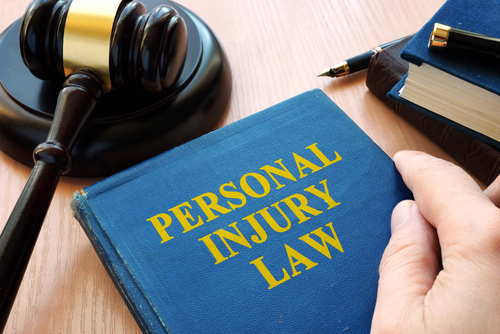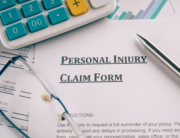Personal injury claims work in a way that follows a somewhat predictable process, although the multitude of individual factors of each case can require changes in the game plan. An experienced personal injury lawyer will know how to navigate these events and switch to a Plan B or C. Sometimes we can turn unexpected developments to the advantage of our clients.
We will use the example of a car crash to walk you through how these claims work. Here are some of the typical stages of a personal injury claim:
- After getting hurt in an accident, you exchanged insurance information with the other driver and provided the details to the law enforcement officer who came to the scene.
- You notified your insurer and got medical attention for your injuries.
- The insurance company of the at-fault driver assigned a claims adjuster to your case.
- The claims adjuster contacted you as part of the investigation into the claim.
- You spoke with a personal injury lawyer about protecting your right to compensation for your injuries. You hired the lawyer on a contingency fee basis, which means that you have no out-of-pocket legal fees. Your lawyer will get paid out of the settlement proceeds or the damages that the court awards.
- Your lawyer contacted the claims adjuster to discuss the accident and your injuries.
- Your lawyer and the adjuster exchanged information, including your medical records and the police report.
- When you completed your medical treatment, you talked with your lawyer about how the injuries continue to impact your daily life. Your lawyer sent you to an expert who assessed how the long-term impairment affects your ability to earn a living, take care of yourself, and enjoy life.
- Your lawyer gathered the evidence, like the police report and your medical records, to build your case for compensation. He calculated the amount that a court was likely to award if your case went to trial. He sent a demand letter to the claims adjuster or the insurance company’s lawyer assigned to the case. Sometimes, insurance companies transfer a case to a defense lawyer when you hire a personal injury lawyer.
- Your lawyer negotiated directly with the insurance defense lawyer or the adjuster on your behalf to try to settle the case for a fair amount of compensation.
- If the case settled, your lawyer will draft or review the settlement documents and explain the papers to you. You sign the documents in exchange for settlement proceeds.
- If the case does not settle, your lawyer can file a lawsuit seeking money damages for your losses.
In any given case, the stages might differ somewhat.
What Happens If the Insurer Will Not Pay a Fair Amount to Settle the Claim
If your lawyer files a personal injury lawsuit on your behalf, there will be three stages to the litigation:
- The pretrial phase, also called discovery, in which the lawyers get as much information as they can to build their cases for trial
- The trial, in which the lawyers present their evidence and arguments to a judge
- Post-trial, which can include post-trial motions and appeals
Your case can settle during any of these stages. The vast majority of lawsuits settle.
What We Have to Prove to Hold Someone Liable for Your Personal Injury Claim
Whether we go to trial or settle with the insurer of the defendant, we will have to prove all of these elements to hold the defendant liable for your losses:
- Legal duty of care. The defendant must have had a legal duty. Staying with the example of a car accident, every driver has a legal responsibility to obey the rules of the road and the traffic laws.
- Breach of the duty. When a person’s conduct does not measure up to the standard of a legal duty, it is negligence. For example, everyone who operates a motor vehicle on a public road must obey FL § 316.193 that prohibits driving while under the influence of alcohol or other drugs. If the defendant was driving drunk, he violated his legal duty to obey the law. As a result, he was negligent.
- The careless conduct (negligence) must be the thing that caused the accident and your injuries. If the defendant’s impairment from alcohol caused the car accident, the facts meet the requirements of this element of liability.
- Quantifiable harm. You must sustain measurable damages as a result of the negligence. If you suffer physical injuries because of the defendant’s reckless conduct, you satisfy the final element of liability.
Once we prove these four elements, we can seek monetary compensation under FL § 768.81 from the defendant for your losses.
Damages in Personal Injury
We cannot say how much money you will collect for your injuries without talking to you and investigating your claim. Every case is different. Many factors can affect the amount of compensation you can pursue.
Some of the types of damages we have won for our personal injury clients include:
- Lost income, if you missed out on pay because of the accident and your recuperation time. This category can include lost wages, salary, self-employment, and other forms of income.
- Medical bills for the reasonable cost of medical treatment you needed for your injuries. The ambulance, emergency room, surgery, doctors, hospital, x-rays, prescription drugs, and physical therapy are some examples of expenses that can be compensable.
- Noneconomic losses, like disfigurement, loss of enjoyment of life, post-traumatic stress disorder (PTSD), and pain and suffering.
- Diminished earning capacity, if the injuries cause you to make less money than you did before the accident
Since every case is unique, you might have one or more of these types of losses.
Getting Legal Help for Your Personal Injury Claim
At the Montero Law Center, we care about our clients. We are family-oriented and involved in helping the community. If you want compassionate, respectful, and responsive legal services, look no further. We work tirelessly to get our clients all the compensation that they deserve. Our clients can focus on getting better while we take care of the rest.
Call the Montero Law Center today at (954) 767-6500 to learn more about how personal injury claims work and how to get started. The initial consultation is at no charge, and there is no obligation.
 English
English  Español
Español 





